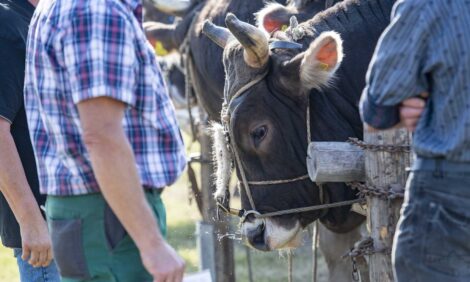



Don't Dismiss Critics, Work to Make Livestock Sustainable
OPINION - People who don’t agree with each other should talk. That’s especially important for controversial topics like the impacts of livestock and meat production on the environment and public health, writes Eleanor Boyle from Vancouver, Canada.Livestock producers are well aware that their sector has its critics. But rather than addressing legitimate concerns, the industry response is often to dismiss such people and organizations. For example, the editorial here on Feb 1, 2012, ‘Who Says Beef Production Isn’t Sustainable?’ repeated a claim concerning the 2006 report Livestock’s Long Shadow from the UN Food and Agriculture Organization (FAO). The editorial suggested that the FAO authors have backed off their contention that livestock is responsible for large amounts of greenhouse gases worldwide. “In 2006, the FAO concluded that livestock production was responsible for 18 per cent of global greenhouse gas emissions, and despite later admitting this figure was invalid, the number has stuck.”
In fact, however, the FAO authors never retracted their 18 per cent figure. What they did retract was their statement that livestock is responsible for more gas emissions than transport. After publication of their report, they publicly conceded that the ‘transport’ comparison was not based on a rigorous analysis, and they shouldn’t have said it. But that’s no reason to discount the entire report, which lays out sweeping evidence that livestock production in the amounts, and methods, of today is environmentally devastating for the long term. And that viewpoint comes from authors who are internationally-recognised agricultural economists and scientists, completely onside with animal agriculture. They just think it needs to be done much better – emitting fewer gases, polluting less water and soil, and going easy on the earth’s finite resources.
There’s another reason for producers to stop trying to undermine the FAO report. By downplaying the extent of the environmental challenges, they’ll be disengaging from the growing conversation on how to make meat production cleaner and kinder. Galvanized partly by Livestock’s Long Shadow, policymakers, citizens and scientists in the UK, US, Canada, Australia, and elsewhere are increasingly questioning current methods and amounts of intensive and mass-volume production.
Let’s get back to the 18 per cent figure, and the industry’s claim that livestock aren’t that bad. It’s true that within some particular countries, such as the US, livestock are responsible for much less than 18 per cent, as Dr Frank Mitloehner and colleagues have pointed out. But for the planet as a whole, taking into account the large amount of deforestation to support meat production, and the fact that per-capita consumption increases are continuing for meat (which is a resource-intensive food), the FAO figure may actually be an underestimate. As well, a growing list of scientists strongly supports the FAO’s broader analysis that livestock are a significant contributor to water pollution, loss of biodiversity, and threats to public health from hormones, antibiotics, excessive fertilizers, other chemicals, and more manure than local ecosystems can often absorb.
The beef industry and other segments of the livestock sector are indeed moving to address some of these issues. Producers are working on ways to raise livestock and make meat and dairy while minimising environmental impacts, as Dr Judith Capper and others have documented. You’re figuring out how to raise lower-carbon sheep and cattle.
But many commentators believe we need stronger public policy to ensure that not only you -- but also your competitors -- are required to do things in ways that are best for the environment and health, even if it means higher-priced retail meat for consumers. And though it isn’t popular with industry, there is also a growing global movement to encourage heavy meat consumers to cut back on their intake so that animal products can be produced within the capacity of local and global ecosystems, and consumed in amounts that are better for human health.
Livestock producers are not the only ones who dismiss their critics. I know environmentalists who only spend time with other like-minded people. It’s human nature, and I’ve been guilty of it in the past. Moving beyond our comfort zones is hard work, but it’s worth the attempt. Let’s all try, and talk about how we can make livestock production, and meat consumption, genuinely sustainable for the future. Producers, policymakers, and citizens who care about environmental, health and community issues can co-operate for long-time viability of livestock and meat as a sector, a livelihood, and a food source. I welcome comments and an ongoing conversation.
TheCattleSite News Desk


